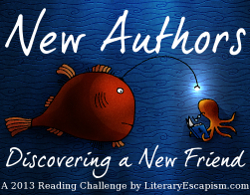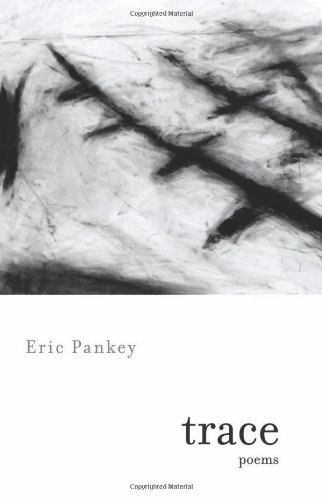Book Source: Purchased at Novel Places
Paperback, 68 pgs
I am an Affiliate of Amazon.com
Trace by Eric Pankey, published by Milkweed Editions on 100 percent post-consumer waste paper, is a melancholy collection of poems that explores faith and the vacillation between believing and not. Combining science and philosophy with observations of nature, Pankey examines the impact of life upon life, memory, and the other. “If all matter is constant, what can one add to creation?”, the narrator of “A Line Made While Walking” asks. What are these lines that we draw between our past and present, God and ourselves, and even between one another — are they not just arbitrary demarcations. Like in “Out-of-the-Body,” the narrator watches the river otter and wonders if the animal is at play or working and whether even such distinctions enter into his thoughts while he’s busily breaking up the ice. And if the otter does not make these distinctions, why do we, especially when we lie awake at night. If only we could watch ourselves from outside of ourselves, what would we see?
Pankey’s preoccupation with death and its ultimate push to think about faith in something greater than ourselves permeates each and every poem in the collection, though some more intensely than others. “All of winter, like a suppressed yawn, wells up inside me” is just one line from “Cogitatio Mortis” or I think of death (a rough Latin-to-English translation). Death is never far from us or our thoughts, especially in today’s media hyped up world in which news from across the globe reaches us in seconds and wars continue to break out across the world.
Edge of Things I wait at the twilit edge of things, A dry spell spilling over into drought, The slippages of shadow silting in, The interchange of dusk to duskier, The half-dark turning half-again as dark. There: night enough to call it a good night. I wait for the resurrection, but wake to morning: Mist lifting off the river. Ladders in the orchard trees although the picking's done.
There are moments of hope in the collection, as Pankey’s poems discuss the death of the body, but not the soul. In “The Place of Skulls,” the narrator talks about the millstones and the hauling down of the bodies, but that the tree continues living and bearing fruit. Whether this is a poem about reincarnation, the absorption of the soul into the tree, or the mere image of saplings that have grown up and bear their own fruit after the sire has passed on does not matter because there is hope that life never just stops. Faith is at the edges of these poems and underneath them, but on the surface, there is death, loss, and memories of all that has passed, even if those memories are faded and carry different emotional context than they did in the moment of creating them.
Trace by Eric Pankey is a collection focused on faith and passing on and what one wishes to leave behind, compared to what is actually left behind. It is about the struggle to continue to get up every day and face it head on, even if death is closer than ever.
About the Poet:
Eric Pankey is the author of nine collections of poetry. TRACE, published by Milkweed Editions this year is the most recent. Two new collections, DISMANTLING THE ANGEL, and CROW-WORK are forthcoming. He is the Heritage Chair in Writing at George Mason University.
He’ll be at the May Gaithersburg Book Festival for “Poetry in the Afternoon” moderated by me!







It was interesting to hear him read his work at the festival. Sounds like an interesting collection.
Interesting subject matter. Gives you a lot to think about.
This collection did have a lot to think about.
I don’t believe I’ve heard of this poet before, but I’ll definitely add him to my list.
Serena, I love your thoughts on his poem IN THE PLACE OF SKULLS …”the absorption of the soul into the tree, or the mere image of saplings that have grown up and bear their own fruit after the sire has passed on does not matter because there is hope that life never just stops.”
Thanks, Beth. I really loved that poem. It was one of my favorites. He’ll be reading at a panel I’m moderating at the Gaithersburg Book Festival — he’s a local poet.